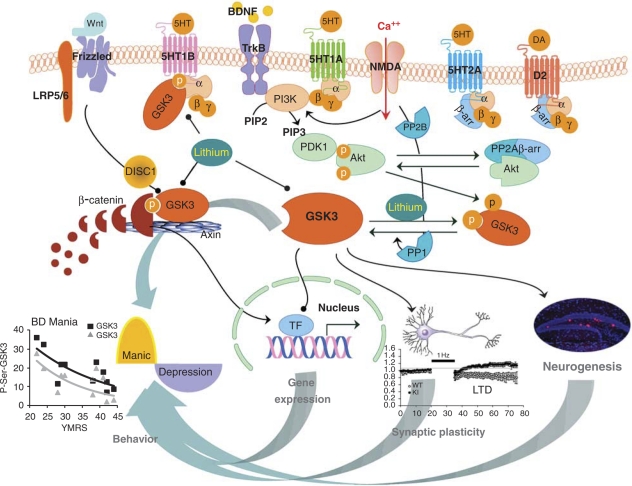Figure 1.
Schematic illustration of signaling pathways regulating GSK3 and functions of GSK3 related to mood regulation. GSK3 is regulated by BDNF, serotonin, and dopamine through the Akt signaling pathway, by the NMDA receptor through protein phosphatases, and by Wnt signaling in the Axin-β-catenin protein complex. Active GSK3 phosphorylates substrate proteins and affects gene expression, synaptic plasticity, and neurogenesis, which in turn regulate mood-related behaviors. Abbreviations: α,β,γ, G-protein subunits; β-arr, β-arrestin; BD, bipolar disorder; BDNF, brain-derived neurotrophic factor; DA, dopamine; D2, type 2 dopamine receptor; DISC1, disrupted in schizophrenia 1; GSK3, glycogen synthase kinase-3; 5HT, serotonin; 5HT1A, 1B, 2A, serotonin receptor subtypes; LTD, long term depression; NMDA, N-methyl--aspartic acid; P, phosphorylated; PDK1, phosphoinositide-dependent kinase-1; PI3K, phosphatidylinositol-3-kinase; PP1, PP2A, PP2B, protein phosphatase 1, 2A, and 2B; TF, transcription factors; TrKB, type B tropomyosin-receptor-kinase; YMRS, Young Mania Rating Scale.

